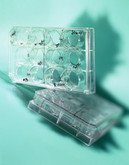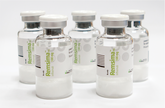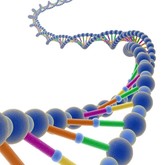Biosimilars/Research
|
Posted 26/10/2018
The US entered the era of biosimilars in 2015 with its very first US Food and Drug Administration (FDA) approved filgrastim biosimilar Zarxio (filgrastim-sndz) [1]. Since then, FDA has approved 11 more biosimilars [2]. Nevertheless, one concern with respect to the manufacturing of biosimilars is that every company has its own proprietary manufacturing process, which could potentially lead to differences in drug properties. Consequently, the debate on how ‘similar’ the biosimilar is to the originator still remains controversial. Thus, a comprehensive but rapid characterization platform that can validate any clinically meaningful differences is required. In this regard, Pisupati et al. [3] carried out a study comparing the reference product Remicade (infliximab) with the first US monoclonal antibody (mAb) biosimilar Remsima (Europe)/Inflectra (US) by incorporating state-of-the-art mass spectrometry-based multiple-attribute monitoring (MAM).














































